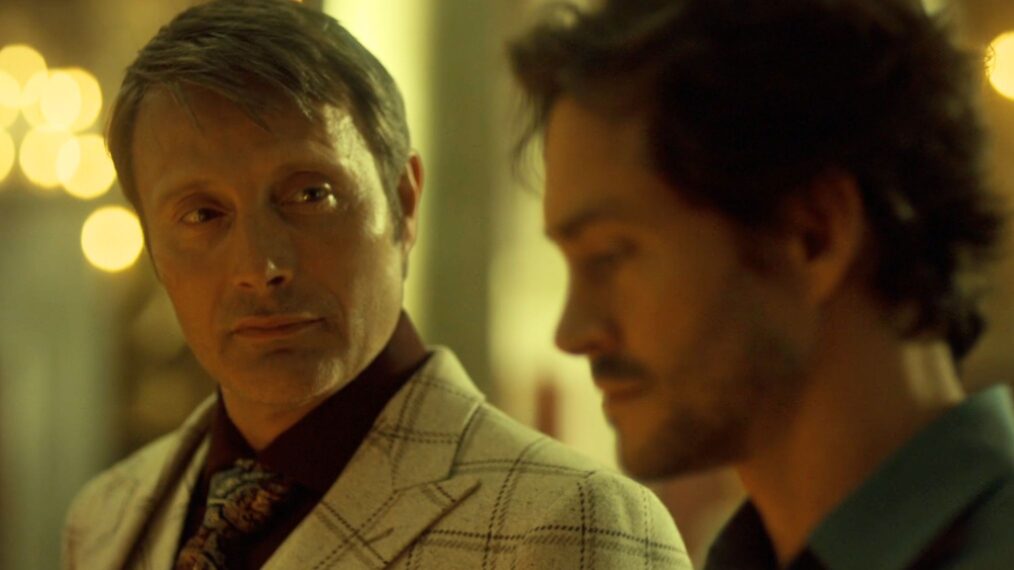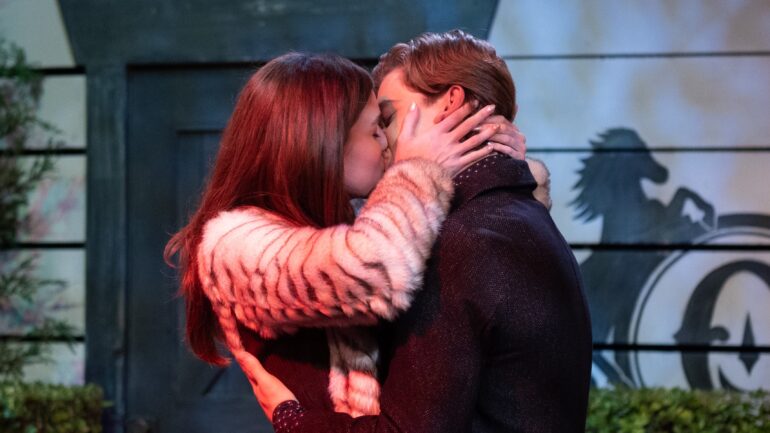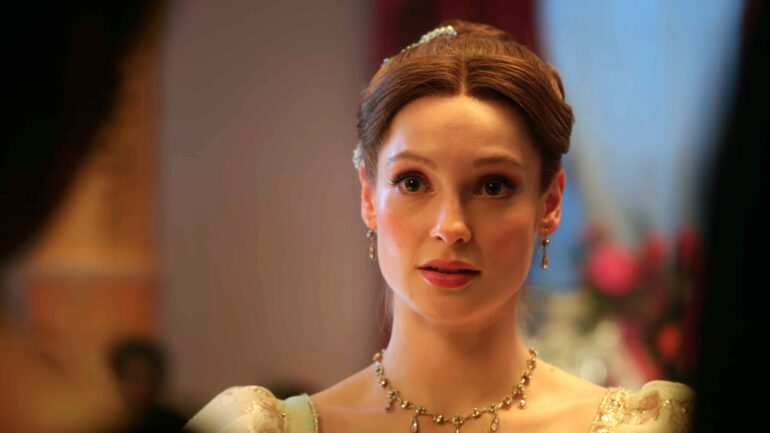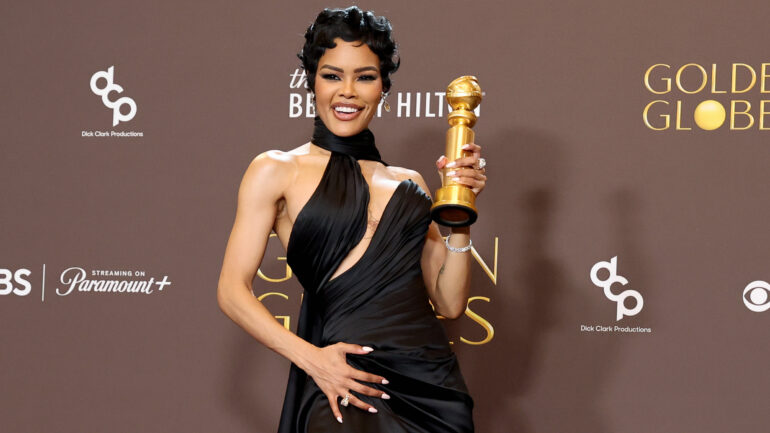Opinion
10 Years Ago, NBC’s ‘Hannibal’ Broke Modern TV’s Queerbaiting Curse
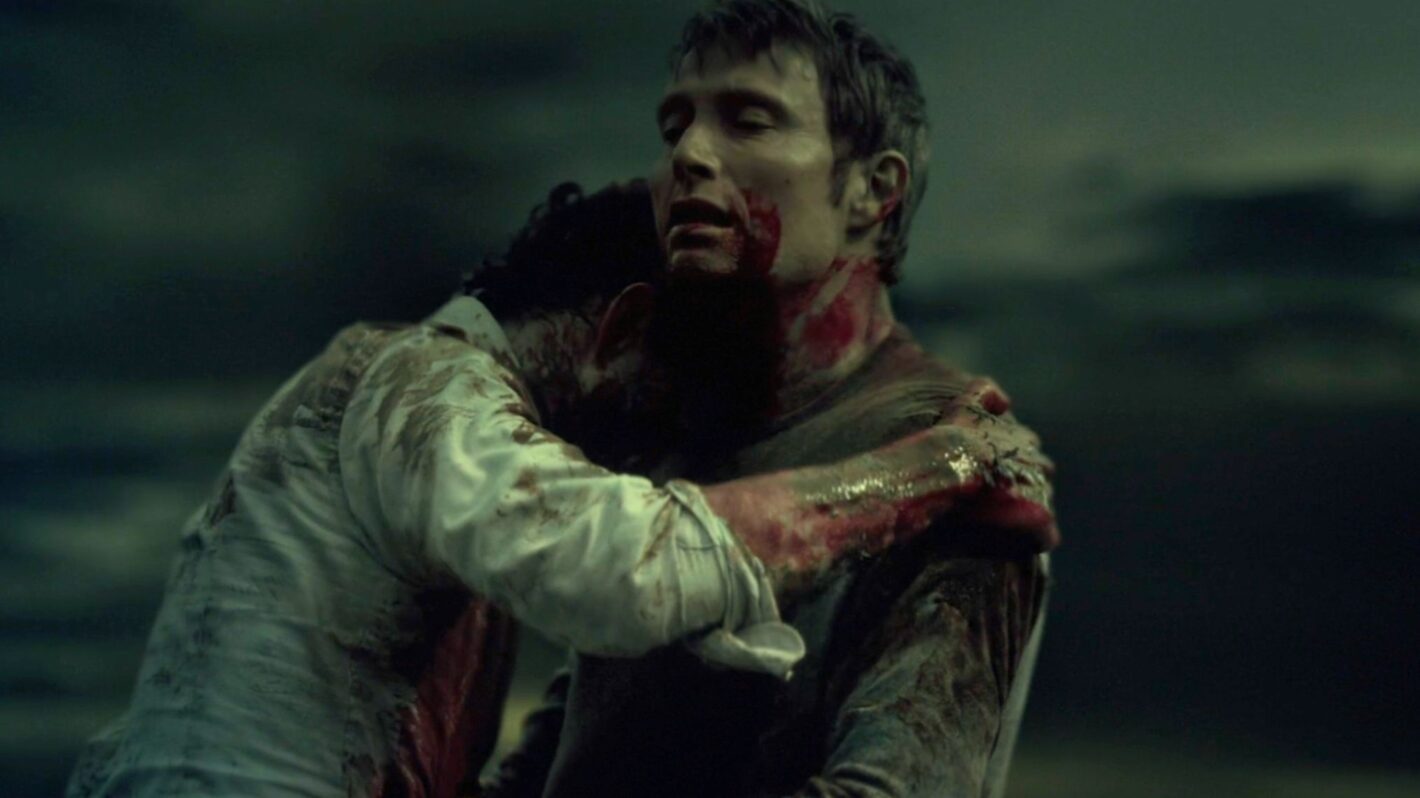
The term “queerbaiting” has long been a trope in media, with films and television shows teasing queer romantic relationships between otherwise straight characters to attract queer audiences. Shows of the 2010s were rife with the trope, including Teen Wolf, Sherlock, and Supernatural. With “queerbaiting” comes the failure to actually commit to the teases and implications, which often leaves fans hanging in limbo and the legacies of these shows tarnished.
Despite the exhaustion of this trope that grew as the decade progressed, a rarity was found among the cacophony of queerbaiting and false promises. Premiering in 2013, NBC’s Hannibal focused on the relationship between special investigator Will Graham (Hugh Dancy) and Dr. Hannibal Lecter (Mads Mikkelsen), a forensic psychiatrist by day and a notorious cannibalistic serial killer by night. Their relationship begins as a typical doctor-patient one, but quickly evolves into something more as Will’s mind begins to unravel, and Hannibal’s infatuation with Will’s mind grows.
From their first meeting, the homoerotic tension between Will and Hannibal is blatant. Hannibal circles Will like a predator stalking its prey, and a cat-and-mouse game unfolds between them, even if Will doesn’t yet know it. The two become friends and allies before evolving into enemies when Hannibal attempts to kill Will and frame him for the murders he is actually committing. While this is happening, the hate that grows within Will for Hannibal only intensifies his obsession with the man. As their relationship fractures on one hand, it grows even stronger as their mutual obsession festers inside of them.
Unlike many of the show’s peers, queer subtext slowly becomes text in Hannibal. In the early episodes, Hannibal gazes at Will as if he’s his next meal, yet lingering beneath these looks is a primal yearning rooted in romantic and sexual desire. Finally, in the now-famed episode, “The Number of the Beast Is 666,” Will inquires with Hannibal’s therapist, Dr. Bedelia Du Maurier (Gillian Anderson), if the man is in love with him. “Could he daily feel a stab of hunger for you and find nourishment at the very sight of you? Yes,” she replies.
While the relationship between the two men would be a perfect example of queerbaiting in any other show, it became clear that Hannibal was indeed a queer show. Beyond this scene, the exploration of Will and Hannibal’s mutual obsession never felt like it was simply a tactic to gain more viewership. The amount of care taken by the creatives responsible for this series to explore how the deeper desires of these characters coincide with how each of them walks through the world surmounted any questions of queerbaiting. What separates Will from Hannibal’s victims is the darkness that lies within him. It’s a darkness that Will himself can neither understand nor explain, sitting in his gut like an empty pit destined to be filled. As the series progresses, Hannibal makes various attempts to get Will to act on this darkness, not only seeing him as a protégé but also as a partner who can revel in this abyss alongside him.
As Will’s psyche begins to unwind, Hannibal starts blurring the lines between what serves as a typical patient-client relationship, forcing Will to explore the dark recesses of his mind outside of their sessions. Desperate to shape Will into the man he knows he can be, Hannibal stresses that these desires, no matter how taboo, should be explored and celebrated. The urges they both share — enacting violence on others — become intertwined with how they view their queerness. Since Hannibal has already come to terms with his killer nature, him being the one more engaged with his love for Will comes as no surprise. Will, however, still seems wary about engaging with his true nature and the love he holds for Hannibal — until the series’ final episode.
After the reveal that Hannibal is in love with Will, their relationship is finally consummated when they defeat Dolarhyde (Richard Armitage) together in “The Wrath of the Lamb.” Will’s potential reaches its climax as he finally embraces the darkness and becomes the killer Hannibal has always known he could be. Covered in sweat and blood, the two begin to hesitantly embrace each other, emphasized even more by a slo-mo shot, like two cosmic beings melding together. With this act, Will has finally accepted who he is and what his life with Hannibal could be. It’s an act of resistance for the two of them to finally be together in ways society won’t accept, but more importantly, ending the series with this moment was a form of resistance by Bryan Fuller.
Chronically online during Hannibal’s run (and after), Fuller was always encouraging fans to ship the two main characters. As a result, Fuller’s engagement with the fandom never once felt like queerbaiting. Instead it felt like a gay creator who was excited that viewers (queer and straight alike) were picking up on the subliminal hints he was sprinkling throughout the show. Hannibal aired during a decade that was wrought with showrunners who teased fans without actually implementing queerness into their characters, but Fuller took a bold step forward by allowing his show to be textually more queer than anyone expected. In a decade that was lacking canonical queer characters and relationships, Hannibal challenged what queer representation could look like onscreen.
Ten years later, it’s still fascinating that this series existed not just in the 2010s, but on network television at all, which still has some catching up to do among titans like HBO and Prime Video. Despite being made in an era where series were constantly queerbaiting fans, Hannibal boldly gave viewers the confirmation they so desperately deserved throughout the show’s fantastic three-season run. As the show’s fate hung in the limbo of network television ratings, Fuller decided to end the series by explicitly stating that the tension between Hannibal and Will wasn’t simply obsession; it was pure and all-consuming love.
At the end of Hannibal’s final episode, as the two men finally orchestrate a killing together, Hannibal looks at Will in wonder. “This is all I ever wanted for you,” he explains to the man he loves, who finally has accepted himself and the darkness that has fused the two of them together forever. “It’s beautiful,” Will admits, finally giving himself over not only to his taboo desires, but to his queerness as well. Hannibal closes out its run as a disruptive and innovative adaptation that still withstands the tests of time, unwilling to bend to the will of a largely sanitized and heterosexual television landscape.


